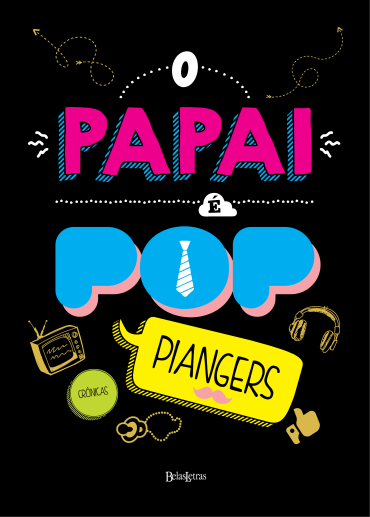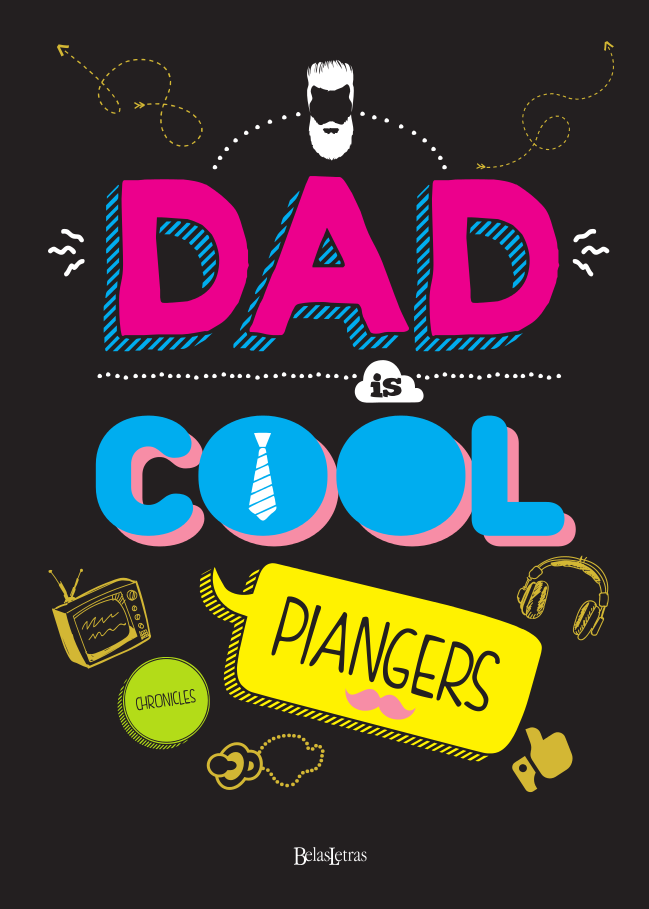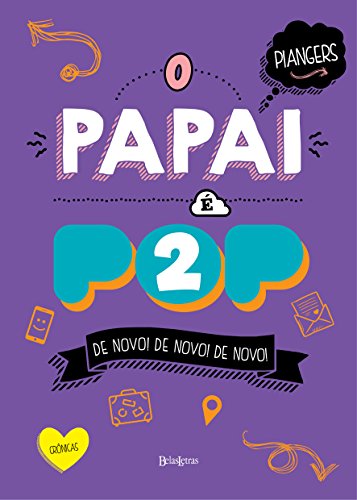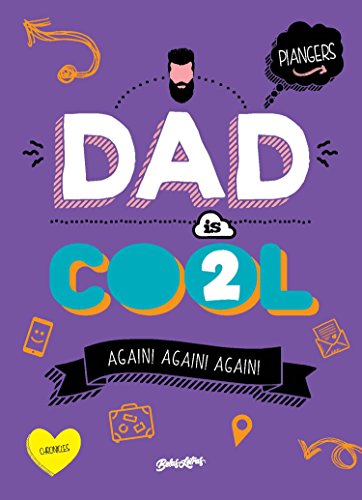By late 2016, I completed what would certainly become the most important book translation I'll ever work on: the memoirs of a Holocaust survivor.
Read more"Dad's Cool" By Marcos Piangers
Correct me if I'm wrong, but the dream of every translator is to work on a book they can translate as if the words were being whispered directly into their ear, effortlessly. A book they could have written themselves, given how familiar they are with the subject. A book about something that is already part of their universe, so much so that they already know what the next line will say
Through the recommendation of a dear friend and diligent translator, Editora Belas Letras contacted me to work on a translation sample of O papai é pop, written by Marcos Piangers, a media and radio personality in Brazil. I hadn't been aware of his work and, to this day, I still haven't met him in person, but after translating his book, I feel as if we sat down at a bar, shared a beer or two over some traditional Brazilian petiscos and talked about raising kids.
He has two daughters, 10 and 3 years old; I have a 7-year-old daughter and a 3-year-old son. He is a hands-on dad who changes diapers, pretends the spoon is an airplane while feeding babies, reads bedtime stories, takes them to adventures at playgrounds and malls, and gets irritated if someone asks him whether he is "the nanny for the day." I have one of those at home―a hands-on dad, that is―and it's a truly moving experience to realize you couldn't have chosen a better person to share this journey called "raising kids." I'm sure that is how Mrs Piangers feels, too.
From the very beginning, while working on the test translation, which involved two of the 32 short stories that compose the book, the words came easily to me. That was the feeling I go throughout the translation of the entire book: Piangers' writing is sincere, it flows naturally. Besides, we're virtually the same age (he is twelve days younger than me) and, having grown up in the ‘80s and ‘90s in Brazil, we both have the same cultural references. Readers feel like they're having a conversation with him, and, indeed, most often the conversations you have with other adults who also have children are about parenting.
However, he's not theoretical about the topic; he doesn't recommend this or that method or technique to make sure you're successful; he knows that failure is part of the deal and that sometimes your children are the ones teaching you something. Piangers is an observer who has picked out true gems from his parenting experiences to write about in a way that makes them universal. And he doesn't talk about the perfect, precious moments only... there's a lot of guilt and poop in this book.
I felt that this universal subject, written in such a conversational tone, deserved a translation faithful to the concepts and images, not just to the words written in the original Portuguese. I can only hope I have done it justice. Whenever my translator brain took over the mommy brain throughout the translation, I looked for inspiration in my real life. "How would I say this if I were talking to a friend about one of my kids?" or "What would my husband say (has said) in this situation?"
For translators or language buffs reading this, here are a few examples of sentences that, translated literally at the word level, could have jarred readers from their spell and thrown them back into stark reality, while my intention was to keep English-speaking readers in the same kind of trance I was, preferably reading through the book without interruptions (while the kids were at school or sleeping.)
Período de adaptação = "Period of adaptation," which became "Period of adjustment"
Pra verem o que é bom pra tosse = "So they see what is good for their cough," which would be completely lost in translation and became "That should teach them a lesson"
comida industrializada = "Industrialized food," which would bring an utterly different image to the reader's mind compared to "processed food," a jargon so dear to new parents who are careful about what they feed their children
enquanto abraçamos nossos filhos no sofá = "while we embrace/hug our children on the sofa," sounds way more forced than "while cuddling with the children on the couch"
Não quero ser saudosista = "I don't want to be nostalgic" could work, but then we'd get into that argument about the true meaning of saudade, that Portuguese word everyone says is untranslatable, and we'd have the Nostalgia Team vs. Longing Feeling Team and nothing would work quite as good as "I'm not into talking about the good old days"
- O fato de a maioria do meu almoço cair na minha roupa = “The fact that most of my lunch fell on my clothes” was translated as “The fact that I’m wearing most of my lunch,” which is a common joke among people who aren’t as careful as they should while eating and end up getting their clothes all dirty during meals
Here's a link to an interview and a TEDx Talk I watched
while trying to get the right tone of Piangers' writing
(This book translation was a true sensory experience!)
At the expense of sounding cheesy, this is an ideal book for parents to read to their children before bed as well. The short stories are brief, yet say so much, and kids will surely identify themselves with the little ones depicted in them. Also, the paperback version looks gorgeous, with all the drawings kids can color, with a special space for them to draw Daddy.
All in all, my goal was not to make anything sound awkward or out of place in the English translation, but to guide readers effortlessly through these short stories. I thought about my American, Canadian, British, and Australian friends I'd like to give a copy of this book to. I thought about how I'd like to have them experience the same thing I felt while reading Pianger's words in Portuguese, the feeling that "I could have written this book, too!"
But could we? Perhaps Piangers’ skill lies in making us imagine we could, even if, in fact, very few of us have the talent to do so and would still have time to raise kids. Because of all those mixed feelings the author aptly describes throughout the book, mommies and daddies are bound to be cheesy and laugh and cry while reading "Dad is Cool."
P.S. I wrote this review while potty training my son, as my daughter walked around the house, tablet in hand, listening to Justin Bieber songs.
RAFA LOMBARDINO is a translator and journalist from Brazil who lives in California. She is the author of "Tools and Technology in Translation ― The Profile of Beginning Language Professionals in the Digital Age," which is based on her UCSD Extension class. Rafa has been working as a translator since 1997 and, in 2011, started to join forces with self-published authors to translate their work into Portuguese and English. She also runs Word Awareness, a small network of professional translators.







